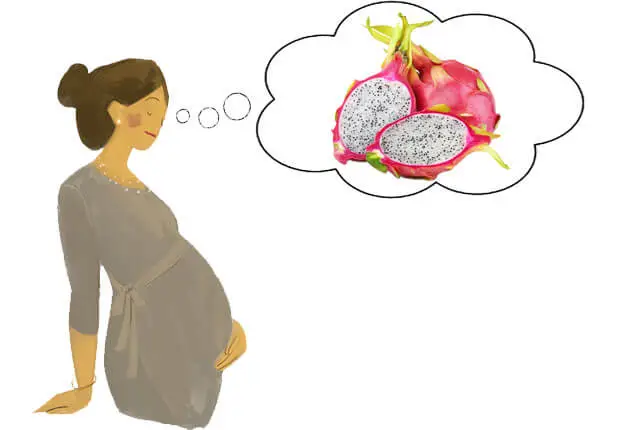
If you’re pregnant and craving dragon fruit but aren’t sure whether it’s safe, you’re not alone. Many moms-to-be wonder about the safety and benefits of this tropical fruit during pregnancy.
Good news—dragon fruit is not only safe for most pregnant women, but it can also be a healthy, tasty addition to your prenatal diet. In this article, we’ll explore the benefits, potential risks, and smart ways to enjoy dragon fruit while you’re expecting.
- Is Dragon Fruit Safe During Pregnancy?
- What Is Dragon Fruit?
- Health Benefits of Dragon Fruit During Pregnancy
- Tips for Eating Dragon Fruit Safely During Pregnancy
- Are There Any Risks?
- How Much Dragon Fruit Can Pregnant Women Eat?
- Can Pregnant Women Eat Dragon Fruit? Frequently Asked Questions
- Final Thoughts: Can Pregnant Women Eat Dragon Fruit?
Is Dragon Fruit Safe During Pregnancy?
Yes, pregnant women can safely eat dragon fruit, as long as they don’t have any allergies or health concerns that would limit their diet. This vibrant fruit is packed with important nutrients like vitamin C, fiber, iron, and antioxidants. It’s also low in calories and contains natural sugars for a gentle energy boost.
That said, while dragon fruit is healthy, it shouldn’t be your only source of nutrition. A well-balanced diet with a variety of fruits and veggies is key to supporting both your health and your baby’s development.
? Note: If you are pregnant and don’t have any health issues or dietary limitations, you can safely include dragon fruit in your pregnancy diet.
What Is Dragon Fruit?

Dragon fruit, also known as pitaya, pitahaya, or strawberry pear, is a tropical fruit that comes from a type of cactus. Native to Central and South America, it’s now grown in many warm regions around the world.
This eye-catching fruit has bright pink or yellow skin with green scales and contains either white or deep red flesh speckled with tiny black seeds. Its flavor is mild and slightly sweet, often compared to a blend of kiwi and pear.
Dragon fruit is usually eaten raw but can also be added to smoothies, salads, or yogurt. It’s refreshing, hydrating, and full of essential vitamins and minerals that support a healthy pregnancy.
Health Benefits of Dragon Fruit During Pregnancy
Adding dragon fruit to your pregnancy diet can offer several potential benefits:
1. Rich in Nutrients
Dragon fruit contains essential vitamins like vitamin C (which supports immunity) and B vitamins, plus minerals like iron, magnesium, and potassium—all of which are important during pregnancy.
2. Boosts Energy Naturally
The fruit’s natural sugars provide a gentle energy boost without the crash that often follows processed sweets. This is perfect for days when pregnancy fatigue kicks in.
3. Supports Digestive Health
Thanks to its high fiber content, dragon fruit may help keep things moving in your digestive system, easing constipation, which is common in pregnancy.
4. Strengthens the Immune System
With its antioxidant-rich profile and high levels of vitamin C, dragon fruit can help support your immune system as your body works overtime growing a baby.
5. Low in Calories, High in Hydration
Dragon fruit is hydrating and low in calories, making it a guilt-free snack option for moms-to-be who are mindful of weight gain but still want something delicious and satisfying.
Tips for Eating Dragon Fruit Safely During Pregnancy
Here are a few smart tips for enjoying dragon fruit during pregnancy:
1. Start Small if It’s New to You
If you’ve never had dragon fruit before, try a small amount at first to make sure you don’t have an allergic reaction.
2. Enjoy It Fresh and Whole
Fresh dragon fruit is best! Add it to smoothies, salads, or eat it by the spoonful for a nutrient-packed snack. Just wash the skin well before cutting it open.
3. Watch for Added Sugars
Avoid processed dragon fruit products like candies, dried fruit, or juices with added sugar. Natural is best when you’re pregnant.
4. Eat in Moderation
Like any fruit, enjoy dragon fruit in moderation. Eating a variety of fruits ensures you’re getting a broad range of nutrients.
5. Talk to Your Doctor if You’re Unsure
If you’re on any medications or have dietary concerns, it’s always a good idea to check with your healthcare provider before adding new foods to your diet.
Are There Any Risks?
For most pregnant women, dragon fruit is safe. However, here are a few things to keep in mind:
1. Possible Allergic Reactions
Although rare, some people are allergic to dragon fruit. If you experience itching, swelling, rashes, or difficulty breathing after eating it, seek medical help right away.
2. Medication Interactions
In large quantities, dragon fruit might interfere with how some medications are absorbed, such as iron supplements or blood thinners. Again, speak to your doctor if you’re on any medications.
3. Natural Sugars
Dragon fruit contains natural sugars. While it’s far healthier than processed sweets, pregnant women managing gestational diabetes should monitor their intake and consult a healthcare provider.
4. Limited Availability and Sourcing
Depending on where you live, fresh dragon fruit might not always be easy to find. Imported fruit could also be treated with chemicals, so choose organic or locally grown when possible.
How Much Dragon Fruit Can Pregnant Women Eat?
We checked how much dragon fruit is safe to eat during pregnancy and if there are any other recommendations for its consumption.
Remember that these guidelines may vary depending on your health history and needs. If you have any concerns about eating dragon fruit during pregnancy, it’s best to consult your healthcare provider to determine the best approach for you and your baby.
There’s no strict guideline on the exact amount, but a moderate serving, about half a cup to one cup a day, is generally safe and healthy for most pregnant women. It’s best to rotate different fruits throughout the week to get a variety of nutrients.
Can Pregnant Women Eat Dragon Fruit? Frequently Asked Questions
Final Thoughts: Can Pregnant Women Eat Dragon Fruit?

Yes! Pregnant women can eat dragon fruit. In fact, it can be a nutritious and refreshing part of your pregnancy diet. It’s rich in vitamins, fiber, and antioxidants, and can help with digestion, energy, and hydration.
As with all things during pregnancy, moderation is key. Listen to your body, enjoy a variety of whole foods, and check in with your healthcare provider if you have any questions about what’s safe for you and your baby.
? Disclaimer: This article is for informational purposes only and is not a substitute for professional medical advice, diagnosis, or treatment. Always consult your doctor, midwife, or a qualified healthcare provider before making any dietary or health decisions during pregnancy.
